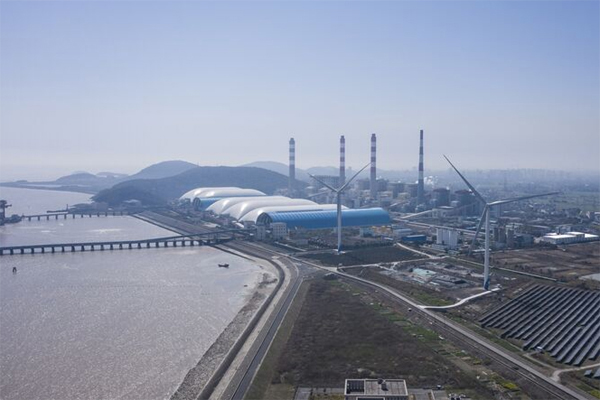- On this week’s Zero, Akshat Rathi talks to International Energy Agency Executive Director
- Fatih Birol about what it will take to cap warming at 1.5C.

Oscar Boyd and Akshat Rathi, Bloomberg News
LONDON
EnergiesNet.com 03 23 2023
Emissions will have to peak by 2025 to limit global temperature rise to no more than 1.5C, according to data from the International Energy Agency. But when exactly that peak is reached majorly depends on energy-consumption giants such as China and India, which are looking to grow their economies and improve living standards even as they tackle long-term decarbonization.
“When I look at all the countries around the world, the most important uncertainty here is China,” Fatih Birol, executive director of the IEA, said on this week’s episode of the Zero podcast. Birol says that he expects China’s emissions to peak before 2030, which will help reduce emissions globally. But China’s peaking alone won’t be enough to put the world on track to meet the 1.5C target that is the central goal of the Paris Agreement.
Breaching the 1.5C target would have dire consequences for large portions of the world, a point underscored by the latest report from the Intergovernmental Panel on Climate Change, published on Monday. According to that report, it’s likely that the world will exceed 1.5C of warming “in the near term,” while widespread changes to planetary systems are already underway.
But there are some positive signs. Europe, while working desperately to move away from Russian fossil fuels in the wake of the invasion of Ukraine, saw its emissions drop by 2.5% last year, according to IEA data. And Birol believes history will look back on 2022 as a milestone year in the broader quest to reduce emissions from the energy sector. “We saw a turbocharging of the clean energy transitions, mainly driven by energy security and climate change concerns,” he said.
The IEA is a small but influential international organization based in Paris. Originally founded in 1974 to help OECD member countries ensure oil supply, it has become increasingly vocal on the need to reduce emissions. In 2021, the IEA made headlines when it published a report that said if we want to achieve net zero by 2050, there should be no new investment in fossil fuel infrastructure.
“We were criticized for being too slow” on climate action, Birol said. “And we are now criticized for being too fast. But I think the people need — the energy world needs — fast and decisive leaders.”
— With assistance by Christine Driscoll
bloomberg.com 03 22 2023












